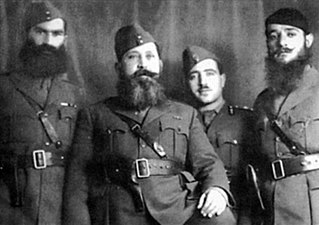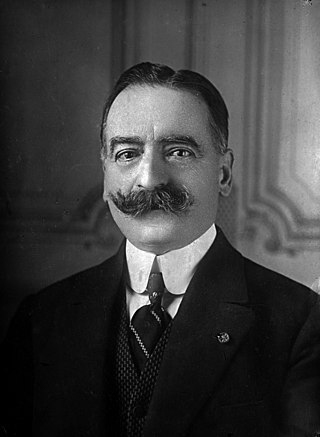
The Liberals of Andorra is a conservative-liberal political party in Andorra. It is a member of the Liberal International and the Alliance of Liberals and Democrats for Europe.

General elections were held in Denmark on 8 February 2005. Prime Minister Anders Fogh Rasmussen's Venstre remained the largest party in the Folketing and his governing coalition with the Conservative People's Party remained intact, with the Danish People's Party providing the parliamentary support needed for the minority government. The Danish Social Liberal Party made the biggest gains of any party, although it remained outside the governing group of parties. The elections marked the second time in a row that the Social Democrats were not the largest party in parliament, a change from most of the 20th century. The Social Democrats lost five seats and leader Mogens Lykketoft resigned immediately after the elections. Voter turnout was 85% in Denmark proper, 73% in the Faroe Islands and 59% in Greenland.

Parliamentary elections were held in Croatia on 29 October 1995 to elect the 127 members of the Chamber of Representatives. The election was held in conjunction with special elections for Zagreb City Assembly, which resulted in the Zagreb Crisis.
The Democratic Party is a centre-right political party in Bulgaria led by Alexander Pramatarski. The party was a member of the European People's Party (EPP).

Federal elections were held in Germany on 15 June 1893. Despite the Social Democratic Party (SPD) receiving a plurality of votes, the Centre Party remained the largest party in the Reichstag after winning 96 of the 397 seats, whilst the SPD won just 44. Voter turnout was 72.4%.

Parliamentary elections were held in Hungary on 10 May 1998, with a second round of voting in 175 of the 176 single member constituencies on 24 May.

Parliamentary elections were held in Greece on 31 March 1946. The result was a victory for the United Alignment of Nationalists, an alliance that included the People's Party, the National Liberal Party, and the Reform Party, which won 206 of the 354 seats in Parliament. As a result, Konstantinos Tsaldaris became Prime Minister leading a right-wing coalition. Nonetheless, he soon decided to resign in favor of Themistoklis Sophoulis, who led a government of national unity during the entire second phase of the civil war (1946–1949). One of the priorities of the new government was the proclamation of a plebiscite for the restoration of the Greek monarchy.

General elections were held in Belgium on 27 November 1932. The Catholic Party won 79 of the 187 seats in the Chamber of Representatives and 42 of the 93 seats in the Senate. Voter turnout was 94.3%.
General elections were held in Italy on 26 October 1913, with a second round of voting on 2 November. The Liberals narrowly retained an absolute majority in the Chamber of Deputies, while the Radical Party emerged as the largest opposition bloc. Both groupings did particularly well in Southern Italy, while the Italian Socialist Party gained eight seats and was the largest party in Emilia-Romagna. However, the election marked the beginning of the decline of Liberal establishment.

Full general elections were held in Belgium on 14 October 1894, with run-off elections held on 21 October 1894.

General elections were held in Italy on 27 January 1861, with a second round on 3 February. The newly elected Parliament first convened in Turin on 4 March 1861, where, thirteen days later, it declared the unification of the country as the Kingdom of Italy.

General elections were held in Italy on 22 October 1865, with a second round of voting on 29 October. It was the second one in the history of Italy.
Parliamentary elections were held in Romania on 28 March 1948. They were the first elections held under communist rule; the communist-dominated parliament had declared Romania a people's republic after King Michael was forced to abdicate in December 1947.

The National Liberal Party was a political party in Bulgaria.
The Democratic Union or Democratic Union Party was a political party in Greece, founded by the prominent liberal and republican politician Alexandros Papanastasiou.
The National Democratic Party, later renamed National Radical Party, was a political party in Greece in the 1920s led by Georgios Kondylis.

The Progressive Party was a political party in Greece in the 1920s and 1930s led by Georgios Kafantaris.

The Democrats Union was a political party in Latvia from 1920 to 1934.

The Labour Party is a minor political party in Moldova led by Gheorghe Sima.

The Republican Union Party, commonly known as the Republican Union or the Unionist Party, was a political party in Portugal.



















